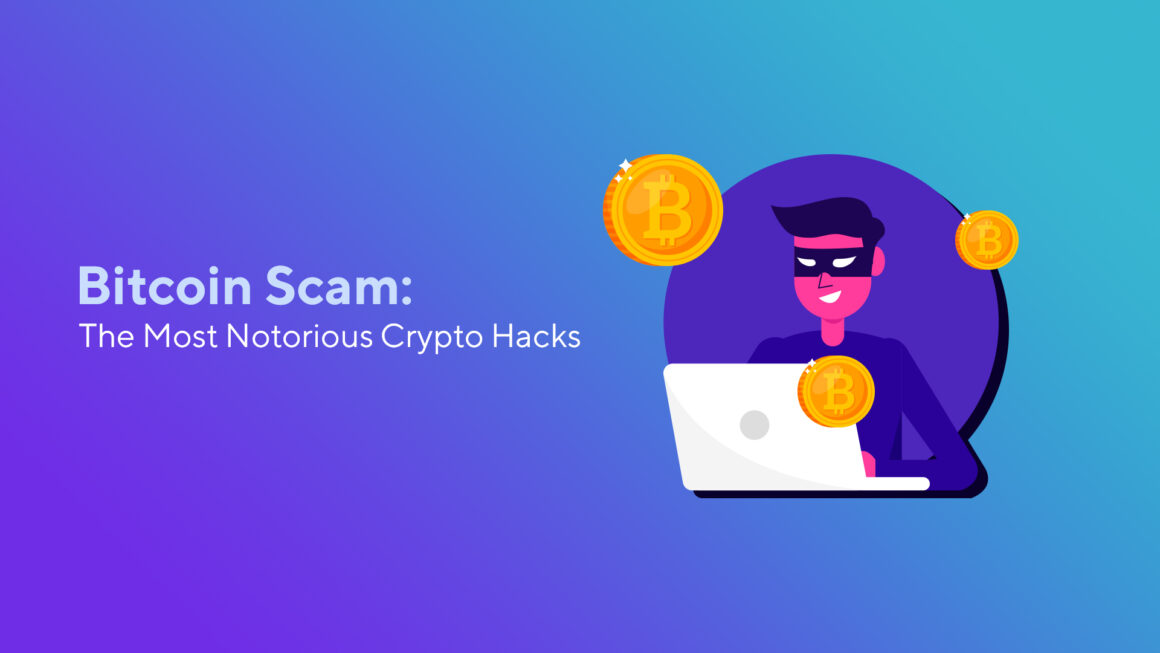Millions of people fall for a scam every year. The world of cryptocurrencies can also become a minefield, in which one wrong step can lead to heavy losses. You can read everything about bitcoin scams, spam emails, blackmail, the Ponzi & pyramid schemes, and other forms of crypto fraud — so that you don’t become the next victim
How many people are robbed of their money in this way is unclear. Users haven’t only had bad experiences with crypto scams in the Darknet. Your email inbox, social media accounts as well as browser are wide-open windows to the world. Anyone can easily become a victim. Just find out about the most notorious crypto hasks and be ready to stand up for yourself!
The Largest Bitcoin Hack of MtGox
Mt.Gox exchange was one of the world’s largest trading centers for bitcoins. The company was founded in 2009 and initially dedicated itself to a card trading. In 2010, it was re-profiled as a Bitcoin exchange. Within a very short time, Mt.Gox quickly became popular. The exchange controlled more than 70 percent of all BTC transactions. Mt.Gox was founded by Jeb McCaleb, who became famous as the CEO of Ripple before switching to a Stellar Lumens cryptocurrency.
However, in early 2014, the Japanese exchange fell victim to a large-scale hack and subsequently lost a huge number of bitcoins. Around 6 percent of all bitcoins that were in circulation was affected. That corresponded to an amount of 760,000 bitcoins with an equivalent of almost 545 million US dollars.
Numerous users of the platform were affected. Celebrities like Roger Ver were among the victims of this crypto scam. As a result, Mt.Gox had to suspend the activities and declare bankruptcy. Later the stolen bitcoins were found in cold wallets. Today, Mt. Gox is going through a civil rehabilitation program in which victims of the platform are reimbursed for their losses.
The Mt.Gox hack went down in history as the first major hack of a crypto exchange.
The DAO Hack
The DAO was the first Decentralized Autonomous Organization that was only controlled by algorithms. That is, a venture capital fund whose investments the shareholders could vote democratically on. The service was based entirely on the Ethereum blockchain launched by Vitalik Buterin. A crowdsale was used to buy shares in the fund, which were displayed in the form of a token.
However, something went wrong. Hackers took advantage of a vulnerability and stole ETH worth almost 50 million US dollars during the crowdsale. However, they couldn’t access their loot — as long as the ICO was still running, all invested funds were frozen on the blockchain. All investments in the smart contract were blocked for 28 days.
The result of the hack was an Ethereum update that made a hard fork necessary. Today’s Ethereum and the Ethereum Classic cryptocurrency emerged as a result of these actions. The hackers are still unknown today.
The Bitconnect Scam
Bitconnect was a cryptocurrency with its own exchange and for years was suspected of being a Ponzi scheme. Bitconnect is an example of Bitcoin scams today, with a number of memes that can be easily found on the Internet.
Bitconnect was launched in February 2016 and has long been one of the most successful cryptocurrencies. Users were encouraged to refer other users and were promised rewards for this, which the company distributed in the form of its own BCC cryptocurrency. Bitconnect promised 120 percent to users annually.
If something sounds too good to be true, it probably isn’t true. The investigative authorities quickly became aware of Bitconnect. Bitconnect’s BCC cryptocurrency hit an all-time high of $437.31 in January 2018. When the US regulators warned the company and forced the trading platform to suspend its activities, the value of BCC coins fell to around $1 in no time. Billions of investor funds were lost. Pending proceedings against the initiators of Bitconnect are still ongoing.
Have you ever been a victim of a crypto scam? Just share your experience in the comments!

Leave a Reply